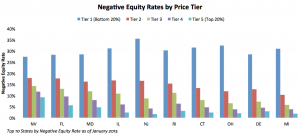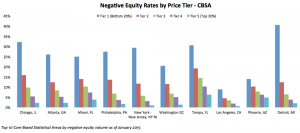From CNBC:
The Wealth Gap Is Expanding as More People Rent, Study Says
For the majority of American homeowners, their house is their single largest asset. Despite the crash in home values in the last decade, that still holds true.
That crash, however, created a much larger share of renters, and these Americans are not enjoying the new wealth that now-rising home prices afford. Ninety percent of metropolitan housing markets have seen a decline in their homeownership rates, while home values are rising and incomes are flat, and that is widening the wealth gap, according to a new study by the National Association of Realtors, which looked at homeownership, home values and income growth from 2000 to 2013.
“Homeownership plays a pivotal role in the U.S. economy and has historically been one of the primary sources of wealth accumulation for middle-class families,” said Lawrence Yun, chief economist for the Realtors.
“Unfortunately, due to an underperforming labor market, insufficient housing supply and overly stringent underwriting standards since the recession, homeownership has plunged to a rate not seen in over two decades,” Yun added. “As a result, the country has become more unequal as the number of homeowners has fallen while the number of renters has significantly risen.”
…
There is also a new asset class of single-family rental homes, the outgrowth of the housing crash, when investors swooped in and bought up millions of distressed properties.This provided even more options and incentives for people to rent, especially those with families who want to live in good school districts. Now, as home prices rise again, none of these renters are now experiencing any of the wealth growth their homeowner neighbors are; they are instead seeing increases in monthly rent charges, which detracts from wealth.
…
“Changes in wealth during this period are especially profound in high-cost metro areas that have seen robust price growth,” added Yun. “For instance, a typical homeowner in San Jose, California, enjoyed an increase of $210,671 in housing wealth, while renters were left behind and likely exposed to annual rent increases.”The wealth gap is increasing most in the largest metropolitan markets, like New York and Los Angeles, but it is happening everywhere. In the Kansas City metropolitan area, the homeownership rate dropped by more than 3 percent between 2010 and 2013, but the change in wealth for homeowners grew by almost $20,000. That’s $20,000 in wealth that renters did not see.
The study also showed that income inequality, based on the Gini index, a measure created by the World Bank, is widening as well. That is exacerbating the wealth gap in certain metro markets as well. For instance, Miami has the third-highest income gap in the nation.
At the same time, the homeownership rate fell by 3.3 percent from 2000 to 2013, while homeowners gained more than $50,000 in household wealth, due to rising home values. Renters, who were likely already on the lower-income side, saw none of those gains.
The newfound popularity of renting among young millennials may come back to bite them, as the gap continues to widen. That divide is also certain to have political ramifications, as candidates for the 2016 presidential election shape their platforms on unemployment and homeownership, at the same time courting the all-important millennial vote.


